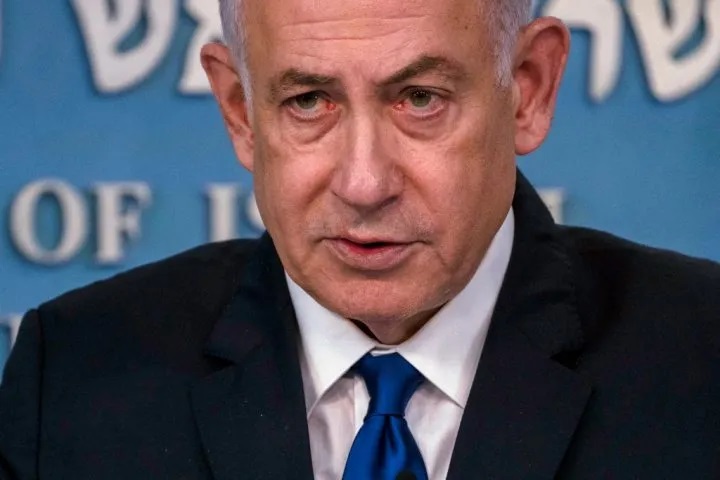When Israeli prime minister Benjamin Netanyahu claimed that he had a “good” talk with President Joe Biden on Thursday, he was hiding a bombshell. It soon emerged that Biden’s words to Netanyahu were harsh and uncompromising. Biden demanded that Israel address the humanitarian situation in Gaza immediately, that it takes concrete steps to protect civilians and aid workers and that it reaches a ceasefire deal with Hamas.
This was an ultimatum. Biden threatened to reassess American policy towards the war in Gaza if Netanyahu does not comply immediately. In other words, he refused to guarantee that the strong support he has given Israel since the war started in October will continue.
Although Israel has been dragging its feet, Hamas is the major obstacle to a deal being struck
This is a major blow to Netanyahu. He has so far defied many American requests. He rejected Biden’s plan for a Fatah/Palestinian Authority rule in Gaza to replace Hamas. He dismissed American calls to stop a large military operation in the city of Rafah — Hamas’s last stronghold in Gaza. He has also been dragging his feet in negotiating a deal with the terror group over the release of Israeli hostages.
Netanyahu’s defiance has undermined relations with the Americans, on whom Israel has relied for weapons, support on the international stage and allyship against Iran. All of these were done for the single reason of maintaining the integrity of his coalition.
When Netanyahu formed a coalition with the far-right in December 2022 he thought that his biggest challenge would be trying to pass reforms to the justice system and other major democratic institutions. He did not imagine that he would be leading Israel through one of its toughest wars since the state was established seventy-six years ago.
Netanyahu now needs to balance national interests with demands from his far right ministers. They object to talks about a Palestinian State and to a deal with Hamas that would include the release of Palestinian prisoners with blood on their hands and a long ceasefire. Netanyahu knows that their threats are not in vain; they would not hesitate to drop him and walk away from the coalition.
If they did, it would likely collapse immediately and trigger a national election in which — as all public opinion polls show — Netanyahu is set to suffer a major loss. No longer protected by the office of prime minister, he would be left eve more exposed to the various trials of corruption he is facing.
In response to yesterday’s call, Israel announced that it will allow much more aid to flow into Gaza through the port of Ashdod and the Erez crossing. Unsurprisingly, Israel’s nationalist minister of national security Itamar Ben-Gvir quickly voiced his objection to the move, claiming that humanitarian aid should only be given once Israeli hostages have been released.
The trickier demand relates to a ceasefire deal with Hamas. Although Israel has been dragging its feet, Hamas is the major obstacle to a deal being struck. They have been constantly shifting their willingness to engage in talks and have refused to back down from their demand for a permanent ceasefire. This would only allow Hamas to rebuild its power and leave Israel vulnerable to further attacks.
The bigger question is also about an operation in Rafah. Although Rafah has an important strategic value to Israel’s goal of destroying Hamas, it’s not clear that a large-scale operation has become unacceptable to the American administration. It might well be a goal that Israel has to forgo if it wants to maintain American support.
Relations between Biden and Netanyahu have been deeply fractured for weeks, despite Biden’s strong commitment to Israel’s security. The killing of aid workers from World Central Kitchen was the last straw. Despite the understanding that unintentional accidents happen in war, the scale of death among civilians and aid workers have alarmed Israel’s allies, who are starting to withdraw their support.
As Israel faces a threat from Iran and the possibility of war with the Iranian-backed militant organization Hezbollah in Lebanon, it needs to maintain positive relations with its allies or it will be fighting its enemies in isolation. The majority of Israelis are concerned by Netanyahu’s conduct and mass protests against him have resumed — even if they are controversial in wartime. As Israel loses international support, it has to rethink its strategy in Gaza and change its approach. This is unlikely to happen as long as Netanyahu is in power.
This article was originally published on The Spectator’s UK website.


























Leave a Reply